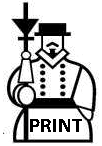Do’s and Don’ts for Good Septic Management Practices
A list of several do’s and don’ts practices to help maintain the life of your septic system. Regular maintenance can avoid costly septic system repairs.
Do: pump your septic tank every 18-24 months. Solids are always accumulating in an operating system. The rate of microbial decomposition is slower than the rate at which sewage is added.
Do: know where waste from your septic sludge is disposed. Illegal dumping can lead back to you and create environmental hazards.
Do: avoid showering and bathing at times when dishwashers and laundry are in use to minimize hydraulic overloading.
Do: fix all leaking faucets and toilets.
Do: try to distribute dish washing and laundry throughout the week rather than all at once.
Do: minimize the use of antibacterial cleaners to avoid killing septic system bacteria.
Do: maintain a diagram of the location of all components of your septic system including: septic tank, cesspools, seepage pits; connections lines and pipes; distribution boxes; disposal fields.
Don’t: pour any of the following into your home drains: paints, varnishes, oil, anit-freeze, pesticides or degreasing materials
Don’t: dump cooking oils, fats or grease into the kitchen sink. Your system cannot treat greases.
Don’t: flush inert or non-biodegradable items down the sinks or toilets.
Don’t: use excessive amounts of water if you want your septic system to continue to operate properly.
Don’t: discharge floor drains, water conditioner discharges or sump pumps into septic systems.
Don’t: add a garbage grinder to a home with a septic system.
Don’t: drive or park vehicles or trailers or install swimming pools over the disposal field. The weight can cause physical damage such as, broken connecting pipes, distribution boxes, manifolds or laterals. It will also starve the drain field bacteria of the oxygen needed to operate effectively.
Don’t: plant trees or other vegetation with extensive or deep root systems.Tree roots are capable of exerting enough pressure to rupture or dislodge distribution boxes, connecting pipes, manifolds or laterals. Grass is the best cover for disposal fields.
Don’t: divert surface water runoff towards the disposal field. The water infiltrating into the disposal field can result in hydraulic overloading and ultimately septic system malfunctions.
Don’t: construct driveways, parking lots, accessory buildings, decks or patios which intrude upon any component of the septic system components.
Don’t: hydraulically overload the septic system by operating a home business, home school or informal day care operation. The septic system is only intended to serve the needs of two adults in the master bedroom and one child in each additional bedroom.
Don’t: dispose of medicines into the septic systems as they are harmful to the septic system bacteria.
It is vital to maintain your septic system to ensure proper operation and maximize life. Call English today to make sure your system is in working order. We offer a number of other services so do not hesitate to ask questions if you are having any other problems in your home.
For more outside information on septic systems visit the InspectAPedia.



